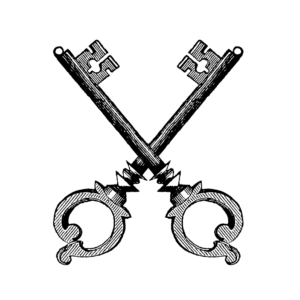

THE MASTER KEY SYSTEM
by Charles F Haanel

Share Your Thoughts
Part Seventeen
The kind of Deity which a man, consciously or unconsciously, worships, indicates the intellectual status of the worshipper.
Ask the Indian of God, and he will describe to you a powerful chieftain of a glorious tribe. Ask the Pagan of God, and he will tell you of a God of fire, a God of water, a god of this, that, and the other.
Ask the Israelite of God, and he will tell you of the God of Moses, who conceived it expedient to rule by coercive measures; hence, the Ten Commandments. Or of Joshua, who led the Israelites into battle, confiscated property, murdered the prisoners, and laid waste to cities.
The so-called heathen made “graven images” of their Gods, whom they were accustomed to worship, but among the most intelligent, at least, these images were but the visible fulcrums with which they were enabled to mentally concentrate on the qualities which they desired to externalize in their lives.
We of the twentieth century worship a God of Love in theory, but in practice we make for ourselves “graven images” of “Wealth,” “Power,” “Fashion,” “Custom” and “Conventionality.” We “fall down” before them and worship them. We concentrate on them and they are thereby externalized in our lives.
The student who masters the contents of Part Seventeen will not mistake the symbols for the reality; he will be interested in causes, rather than effects. He will concentrate on the realities of life, and will then not be disappointed in the results.

1. We are told that Man has “dominion over all things”; this dominion is established through Mind. Thought is the activity which controls every principle beneath it. The highest principle by reason of its superior essence and qualities necessarily determines the circumstances, aspects and relation of everything with which it comes in contact.
2. The vibrations of mental forces are the finest and consequently the most powerful in existence. To those who perceive the nature and transcendency of mental force, all physical power sinks into insignificance.
3. We are accustomed to look upon the Universe with a lens of five senses, and from these experiences our anthropomorphic conceptions originate, but true conceptions are only secured by spiritual insight. This insight requires a quickening of the vibrations of the Mind, and is only secured when the mind is continuously concentrated in a given direction.
4. Continuous concentration means an even, unbroken flow of thought and is the result of patient, persistent, persevering and well-regulated system.
5. Great discoveries are the result of long-continued investigation. The science of mathematics requires years of concentrated effort to master it, and the greatest science — that of the Mind — is revealed only through concentrated effort.
6. Concentration is much misunderstood; there seems to be an idea of effort or activity associated with it, when just the contrary is necessary. The greatness of an actor lies in the fact that he forgets himself in the portrayal of his character, becoming so identified with it, that the audience is swayed by the realism of the performance. This will give you a good idea of true concentration; you should be so interested in your thought, so engrossed in your subject, as to be conscious of nothing else. Such concentration leads to intuitive perception and immediate insight into the nature of the object concentrated upon.
7. All knowledge is the result of concentration of this kind; it is thus that the secrets of Heaven and Earth have been wrested; it is thus that the mind becomes a magnet and the desire to know draws the knowledge, irresistibly attracts it, makes it your own.
8. Desire is largely subconscious; conscious desire rarely realizes its object when the latter is out of immediate reach. Subconscious desire arouses the latent faculties of the mind, and difficult problems seem to solve themselves.
9. The subconscious mind may be aroused and brought into action in any direction and made to serve us for any purpose, by concentration. The practice of concentration requires the control of the physical, mental, and psychical being; all modes of consciousness whether physical, mental, or psychical, must be under control.
10. Spiritual Truth is therefore the controlling factor; it is this which will enable you to grow out of limited attainment and reach a point where you will be able to translate modes of thought into character and consciousness.
11. Concentration does not mean mere thinking of thoughts, but the transmutation of these thoughts into practical values; the average person has no conception of the meaning of concentration. There is always the cry “to have” but never the cry “to be”; they fail to understand that they cannot have one without the other, that they must first find the “kingdom” before they can have the “things added.” Momentary enthusiasm is of no value; it is only with unbounded self-confidence that the goal is reached.
12. The mind may place the ideal a little too high and fall short of the mark; it may attempt to soar on untrained wings and instead of flying, fall to earth; but that is no reason for not making another attempt.
13. Weakness is the only barrier to mental attainment; attribute your weakness to physical limitations or mental uncertainties and try again; ease and perfection are gained by repetition.
14. The astronomer centers his mind on the stars and they give forth their secrets; the geologists centers his mind on the construction of the earth and we have geology; so with all things. Men center their minds on the problems of life, and the result is apparent in the vast and complex social order of the day.
15. All mental discovery and attainment are the result of desire plus concentration; desire is the strongest mode of action; the more persistent the desire, the more authoritative the revelation. Desire added to concentration will wrench any secret from nature.
16. In realizing great thoughts, in experiencing great emotions that correspond with great thoughts, the mind is in a state where it appreciates the value of higher things.
17. The intensity of one moment’s earnest concentration and the intense longing to become and to attain may take you further than years of slow normal and forced effort; it will unfasten the prison bars of unbelief, weakness, impotence and self-belittlement, and you will come into a realization of the joy of overcoming.
18. The spirit of initiative and originality is developed through persistence and continuity of mental effort. Business teaches the value of concentration and encourages decision of character; it develops practical insight and quickness of conclusion. The mental element in every commercial pursuit is dominant as the controlling factor, and desire is the predominating force; all commercial relations are the externalization of desire.
19. Many of the sturdy and substantial virtues are developed in commercial employment; the mind is steadied and directed; it becomes efficient. The principal necessity is the strengthening of the mind so that it rises superior to the distractions and wayward impulses of instinctive life and thus successfully overcomes in the conflict between the higher and lower self.
20. All of us are dynamos, but the dynamo of itself is nothing; the mind must work the dynamo; then it is useful and its energy can be definitely concentrated. The mind is an engine whose power is undreamed; thought is an omni-working power. It is the ruler and creator of all form and all events occurring in form. Physical energy is nothing in comparison with the omnipotence of thought, because thought enables man to harness all other natural power.
21. Vibration is the action of thought; it is vibration which reaches out and attracts the material necessary to construct and build. There is nothing mysterious concerning the power of thought; concentration simply implies that consciousness can be focalized to the point where it becomes identified with the object of its attention. As food absorbed is the essence of the body, so the mind absorbs the object of its attention, gives it life and being.
22. If you concentrate on some matter of importance, the intuitive power will be set in operation, and help will come in the nature of information which will lead to success.
23. Intuition arrives at conclusions without the aid of experience or memory. Intuition often solves problems that are beyond the grasp of the reasoning power. Intuition often comes with a suddenness that is startling; it reveals the truth for which we are searching, so directly that it seems to come from a higher power. Intuition can be cultivated and developed; in order to do this it must be recognized and appreciated; if the intuitive visitor is given a royal welcome when he comes, he will come again; the more cordial the welcome the more frequent his visits will become, but if he is ignored or neglected he will make his visits few and far apart.
24. Intuition usually comes in the Silence; great minds seek solitude frequently; it is here that all the larger problems of life are worked out. For this reason every businessman who can afford it has a private office, where he will not be disturbed; if you cannot afford a private office you can at least find somewhere, where you can be alone a few minutes each day, to train the thought along lines which will enable you to develop that invincible power which is necessary to achieve.
25. Remember that fundamentally the subconscious is omnipotent; there is no limit to the things that can be done when it is given the power to act. Your degree of success is determined by the nature of your desire. If the nature of your desire is in harmony with Natural Law or the Universal Mind, it will gradually emancipate the mind and give you invincible courage.
26. Every obstacle conquered, every victory gained, will give you more faith in your power, and you will have greater ability to win. Your strength is determined by your mental attitude; if this attitude is one of success, and is permanently held with an unswerving purpose, you will attract to you from the invisible domain the things you silently demand.
27. By keeping the thought in mind, it will gradually take tangible form. A definite purpose sets causes in motion which go out in the invisible world and find the material necessary to serve your purpose.
28. You may be pursuing the symbols of power, instead of power itself. You may be pursuing fame instead of honor, riches instead of wealth, position instead of servitude; in either event you will find that they turn to ashes just as you overtake them.
29. Premature wealth or position cannot be retained because it has not been earned; we get only what we give, and those who try to get without giving always find that the law of compensation is relentlessly bringing about an exact equilibrium.
30. The race has usually been for money and other mere symbols of power, but with an understanding of the true source of power, we can afford to ignore the symbols. The man with a large bank account finds it unnecessary to load his pockets down with gold; so with the man who has found the true source of power; he is no longer interested in its shams or pretensions.
31. Thought ordinarily leads outwardly in evolutionary directions, but it can be turned within where it will take hold of the basic principles of things, the heart of things, the spirit of things. When you get to the heart of things it is comparatively easy to understand and command them.
32. This is because the Spirit of a thing is the thing itself, the vital part of it, the real substance. The form is simply the outward manifestation of the spiritual activity within.
33. For your exercise this week concentrate as nearly as possible in accordance with the method outlined in this lesson; let there be no conscious effort or activity associated with your purpose. Relax completely, avoid any thought of anxiety as to results. Remember that power comes through repose. Let the thought dwell upon your object, until it is completely identified with it, until you are conscious of nothing else.
34. If you wish to eliminate fear, concentrate on courage.
35. If you wish to eliminate lack, concentrate on abundance.
36. If you wish to eliminate disease, concentrate on health.
37. Always concentrate on the ideal as an already existing fact; this is the germ cell, the life principle which goes forth and sets in motion those causes which guide, direct and bring about the necessary relation, which eventually manifest in form.
Thought is the property of those only who can entertain it.
-Emerson
